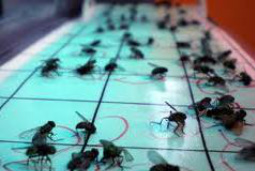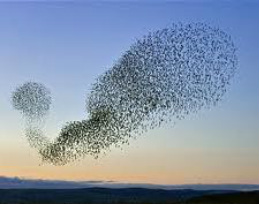
Insects and small birds, for example, can see more information in one second than a larger animal such as an elephant.
 www.rentokil.com
www.rentokil.com Flies might not be deep thinkers but they can make good decisions very quickly."
 www.telegraph.co.uk
www.telegraph.co.uk Apparently, some humans perceive movement faster than others. Athletes can often process visual information more quickly. An experienced goalkeeper would therefore be quicker than others in observing where a ball comes from. I can name other games where fast thinking would benefit a team: polo, basketball, short track races; you can probably suggest more.
According to the study, the speed at which humans absorb visual information is also age-related. Youngsters react fast right up to their prime, but the ability decreases with age.
The study used a technique called critical flicker fusion frequency, which measures the speed at which the eye can process light. Plotting results on a graph revealed a pattern that showed a strong relationship between body size and how quick the eye could respond to changing visual information such as a flashing light.
They warned that our perception of speed has reached the limit of what is humanly possible in driving Formula 1 speed cars or flying planes. To move any quicker would require either computer assistance, or enhancement of our visual system, either through drugs or implants.
Sounds like more science fiction becoming reality for the future.

 RSS Feed
RSS Feed






